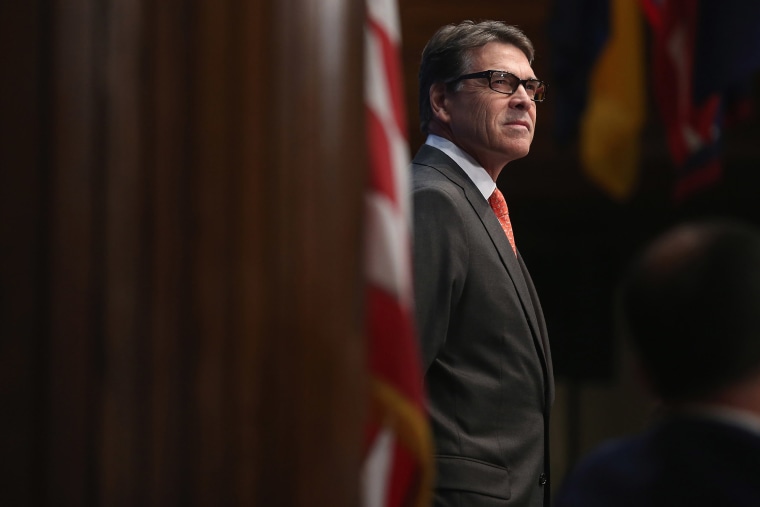News reports yesterday suggested former Texas Gov. Rick Perry's (R) presidential campaign was in real trouble: he could no longer afford to pay his staffers in the early primary state of South Carolina. By last night, however, the news was much worse.
CBS News and the Washington Post both reported separately that Perry is no longer paying anyone on his staff.
Former Texas governor Rick Perry's presidential campaign is no longer paying its staff because fundraising has dried up, while his cash-flush allied super PAC is preparing to expand its political operation to compensate for the campaign's shortcomings, campaign and super PAC officials and other Republicans familiar with the operation said late Monday. Perry, who has struggled to gain traction in his second presidential run, has stopped paying his staff at the national headquarters in Austin as well as in the early caucus and primary states of Iowa, New Hampshire and South Carolina, according to a Republican familiar with the Perry campaign who demanded anonymity because of the sensitivity of the situation.
The Post's report added that as recently as Friday -- the day after the prime-time debate Perry didn't participate in -- campaign manager Jeff Miller told the staff they are free to look for other jobs.
It's fair to say this is not the sort of message a campaign manager delivers when a candidacy is going well.
That said, this doesn't necessarily mean the former governor is finished. Traditionally, when a campaign operation runs out of money, it's days are numbered, but in the curious world of modern campaign finance, it's not quite so simple.
Looking back at our recent report on 2016 fundraising, it's obviously true that Perry's national operation has struggled badly to raise money, taking in only $1.1 million. For a typical American, that may sound like a lot of money, but 10 other presidential candidates, including Lindsey Graham, have raised more than Perry this year.
Perry's "Opportunity and Freedom" super PAC, however, has had far greater success, collecting in upwards of $17 million this year. In other words, Perry's campaign is broke. But Perry's outside operation remains flush with cash.
Austin Barbour, senior adviser to the super PAC, told the Washington Post that the group would step up "to aggressively support the governor in a number of different ways." He added, "We've got plenty of money.... The super PAC is not going to let Rick Perry down."
So what happens now? The Perry campaign operation is slowly imploding, but he may very well be able to stay in the race thanks to a super PAC -- which he cannot legally coordinate with -- that can finance its own media operation and ground game on the Texan's behalf.
How long such an arrangement can be sustained is unclear. Maybe Perry will hang onto his super PAC as a life-preserver for months; maybe Perry will see the writing on the wall and drop out today.
But these latest developments make it very hard to imagine how the campaign will seriously compete in the future. Perry hasn't qualified for the debates; he can't pay his staff; and he can't finance a credible campaign operation in the early nominating states. If you were a Republican voter -- or Republican donor -- weighing your 2016 choices, would you rally behind Rick Perry under these circumstances?
